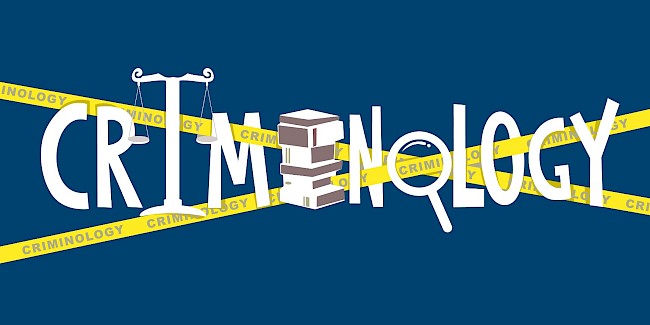
Applications for The Victory Academy Sixth Form are now open! To apply please click here.

Applications for The Victory Academy Sixth Form are now open! To apply please click here.
The WJEC Level 3 Applied Diploma in Criminology is equivalent to one A level. Taught within the Vocational Faculty, Criminology is an Applied General qualification, designed to offer exciting and interesting experiences through applied learning, i.e. through the acquisition of knowledge and understanding in purposeful contexts linked to the criminal justice system.
Our intent is to explore and engage with different areas within criminology, that takes the students beyond their existing knowledge of what is a crime and the different types of crime in the UK. The intent of the criminology curriculum is to equip students with an array of critical skills and an analytical frame of mind. This course gives our students a good basis of knowledge and understanding of Criminology for progression opportunities to further academic study. Whatever the next steps for our students, they can take the ‘transferable skills’ and use them flexibly to their best effect.

Each unit within the qualification has an applied purpose which demands learning related to authentic case studies. It also requires learners to consider how the use and application of their learning impacts on themselves, other individuals, employers, society and the environment. The applied purpose will also allow learners to learn in such a way that they develop:
• skills required for independent learning and development
• a range of generic and transferable skills
• the ability to solve problems
• the skills of project based research, development and presentation
• the fundamental ability to work alongside other professionals, in a professional environment
• the ability to apply learning in vocational contexts
This course has 4 units, 2 are controlled assessment and 2 are external exams. This allows our students to be able to assess themselves actively and accurately, and be self-motived learners, to enable them to shape their own success. The course requires the students to have contact with a range of external professionals which support our curriculum. Students are given the opportunity to consider a vast range of careers within the field of criminology and this supports the schools desire to increase the life chances of our students.
In Year 12 we look at the research behind criminology and what makes someone a criminal, both from a sociological and psychological perspective.
Unit 1 covers the changing awareness of crime in our society, looking at case studies and recent crimes. It looks at media campaigns which have influenced changes in the law. This mandatory unit will enable the learner to demonstrate understanding of different types of crime, influences on perceptions of crime and why some crimes are unreported. This is assessed internally by a controlled assessment.
Unit 2 looks at criminological theories of criminality and its causes, the influence on policy change and why some changes were necessary. This mandatory unit will allow learners to gain an understanding of why people commit crime, drawing on what they have learned in Unit 1. This unit is assessed by an external exam.
In year 13, we look at how criminal justice is carried out in the UK.
Unit 3 covers the investigative processes and practices of personnel involved in criminal investigations. This mandatory unit will provide an understanding of the criminal justice system from the moment a crime has been identified to the verdict. Learners will develop the understanding and skills needed to examine information in order to review the justice of verdicts in criminal cases. This is assessed internally by a controlled assessment.
Unit 4 covers the criminal justice system in England and Wales. In this final mandatory unit, learners will apply their understanding of the awareness of criminality, criminological theories and the process of bringing an accused to court in order to evaluate the effectiveness of social control to deliver criminal justice policy.
Police Officers Scene of Crime Officers Pathologists Solicitors Barristers Court Personnel | Probation Services National Crime Agency HMRC Youth Court Prison Service Youth Workers | Government Officers Civil Service Social Services Border Control Immigration
|
https://www.thejusticegap.com/
http://criminal-justice.iresearchnet.com/
https://routledgetextbooks.com/textbooks/_author/newburn/
The Crime and Deviance Channel http://www.sociology.org.uk/cc_channel_subscriptions.htm
Psychology of crime http://www.holah.karoo.net/alevel/crime.htm
Blogs and articles on psychology of crime http://www.psychologytoday.com/topics/law-andcrime
http://www.exploreforensics.co.uk/ Explore Forensics
Books
Wilson J Q and Herrnstein R J Crime & Human Nature: The Definitive Study of the Causes of Crime (Free Press, 1998) ISBN 9780684852669
Muncie J and McLaughlin E (editors) The Problem of Crime (Sage Publications Ltd, 2001) ISBN 9780761969716
Becker H S Outsiders: Studies in Sociology of Deviance (Simon & Schuster Ltd, 1997) ISBN 9780684836355
Swale J (2007) Sociology of Crime & Deviance (Philip Allan Updates) ISBN 9781844896332
Gardner R and Bevel T (2009) Practical Crime Scene Analysis and Reconstruction (Practical Aspects of Criminal & Forensic Investigations) Taylor and Francis group ISBN 9781420065510
Ebisike, Norbert (October 2008). Offender Profiling in the Courtroom: The Use and Abuse of Expert Witness Testimony Greenwood Publishing Group. ISBN 9780313362101.
Kelling L and Coles C M Fixing Broken Windows: Restoring Order and Reducing Crime in Our Communities (Simon and Schuster Inc, 1998) ISBN 9780684837383
Martin Innes (2003) Understanding social control: Deviance, crime and social order McGraw Hill ISBN 0335209408